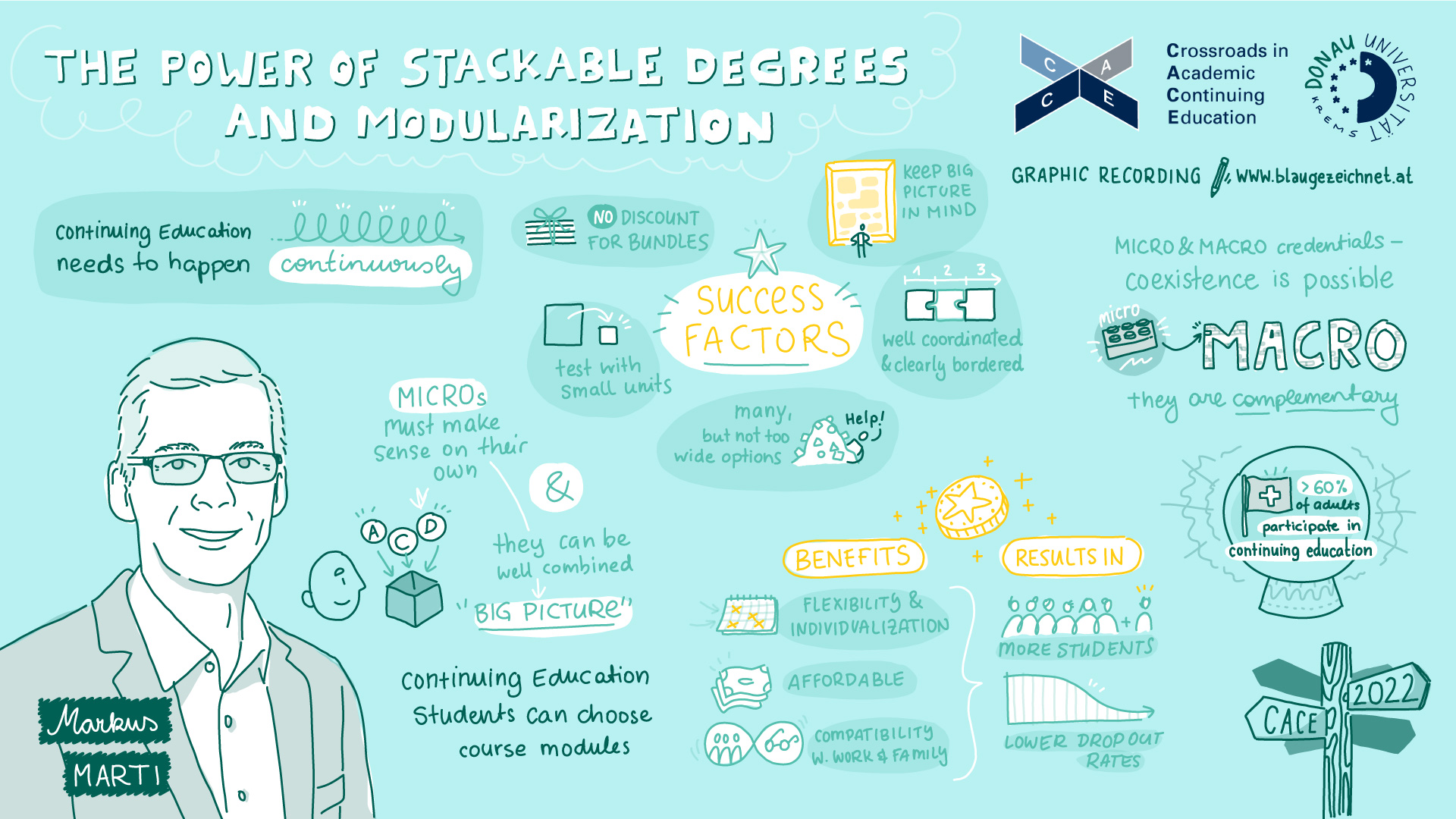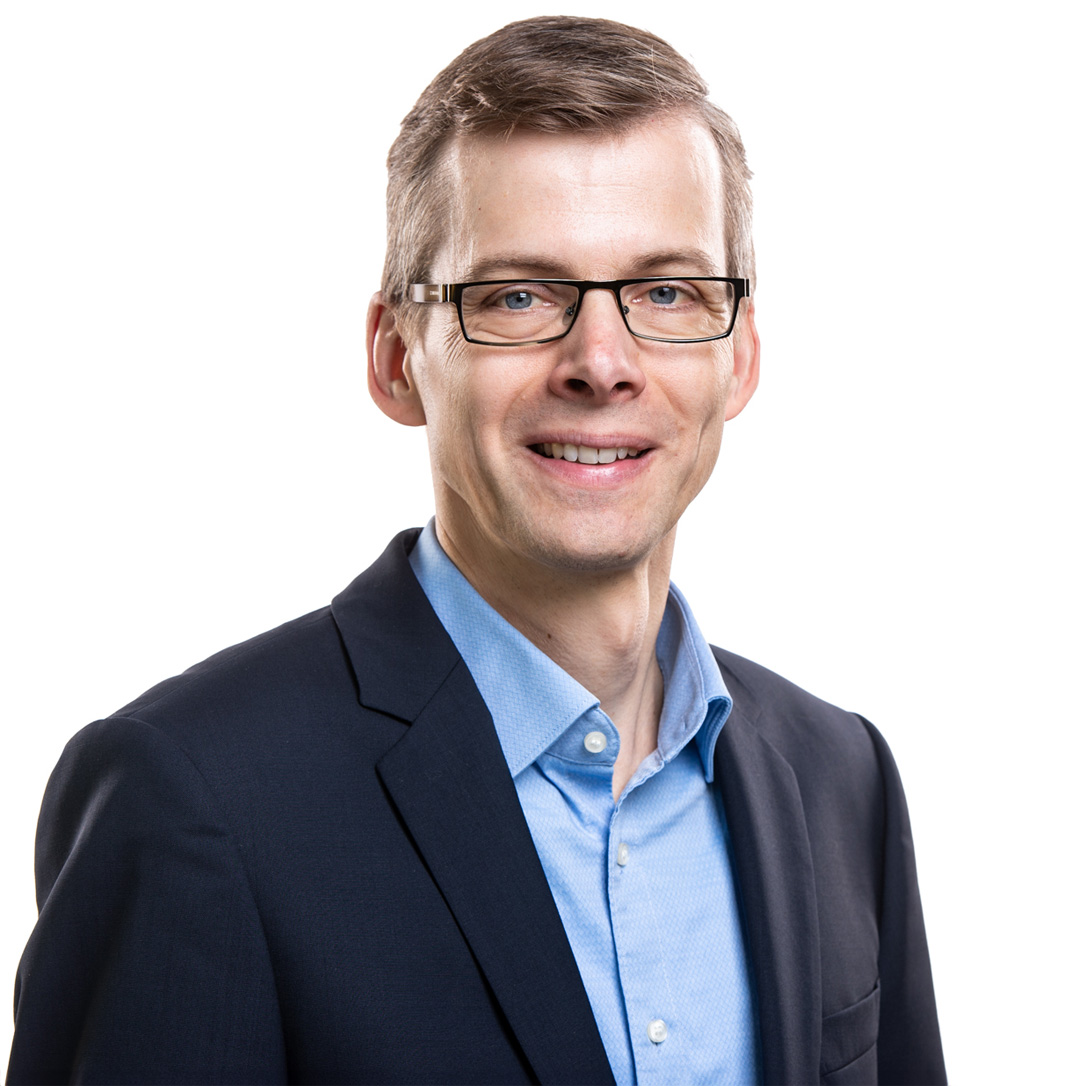blaugezeichnet.2024-09-13-08-28-00.jpg)
At the ZHAW School of Engineering, degrees are „stackable,“ meaning they can be combined to form a higher-level qualification. At the third CACE event, Markus Marti, long-time director of continuing education at the Swiss ZHAW School of Engineering, illustrated how their concept of modularization works.
All continuing education formats are designed to be compatible with work schedules. The smallest unit, the Continuing Education Course (CEC), ranges from one to nine ECTS credits, with one ECTS credit equivalent to approximately 25 to 30 hours of work. The Certificate of Advanced Studies (CAS) consists of ten to 15 ECTS credits, while the Diploma of Advanced Studies (DAS) comprises 30 to 40 ECTS credits. A Master of Advanced Studies (MAS) requires a minimum of 60 ECTS credits.
The idea behind „stackability“ and modularization is to allow students to create an individualized program. According to Marti, flexibility is provided in terms of content and scheduling. The programs can be combined to achieve a higher-level qualification, such as three CAS courses combined with a master’s thesis for a MAS.
In the field of Data Science, there are five different CAS options. Those aiming for a DAS can choose three CAS courses and have them count towards the DAS. These qualifications are also transferable for a MAS.
The study offering at ZHAW includes five Master of Advanced Studies (MAS), six Diploma of Advanced Studies (DAS), 26 Certificate of Advanced Studies, and 23 Continuing Education Courses (CEC). Thanks to modularization, the number of students has nearly tripled over the past ten years, according to Marti’s assessment.
For such a system, the modules should stand alone while still being easily combinable. The offering should be broad enough to provide students with a meaningful selection without overwhelming them with content or bureaucracy. In some subjects, starting with small units such as CEC or CAS courses is desirable. To keep dropout rates low and ensure high flexibility, it is advisable not to offer discounts on a complete MAS program. The ability to distribute costs more evenly across modules is already an advantage for students.
Modularization also offers advantages for universities. Smaller units are easier to market and sell than expensive, large-scale programs. It is also easier to modify and vary programs. Furthermore, cooperation with other departments or universities is less complicated. „Modularization is the unique selling proposition of our continuing education system,“ emphasizes Marti, who sees it as the key to the success of ZHAW School of Engineering programs.
About Markus Marti

Markus Marti studied Computer Science at the ETH Zurich and worked in the Service Sector for several years. During this time he was first Project Manager of large international projects, then Director Application Development and Member of the Executive Board of one of the largest Web Agencies in Switzerland. After completing his postgraduate studies in Didactics, Markus Marti shifted to the Education Sector and took over the lead of a Higher Technical School. Since 2011, Markus Marti is Head of Continuing Education at the ZHAW School of Engineering. The Continuing Education Program at the ZHAW School of Engineering currently includes 5 Master of Advanced Studies (MAS), 6 Diploma of Advanced Studies (DAS), 26 Certificate of Advanced Studies (CAS) and 23 Continuing education courses (CEC).